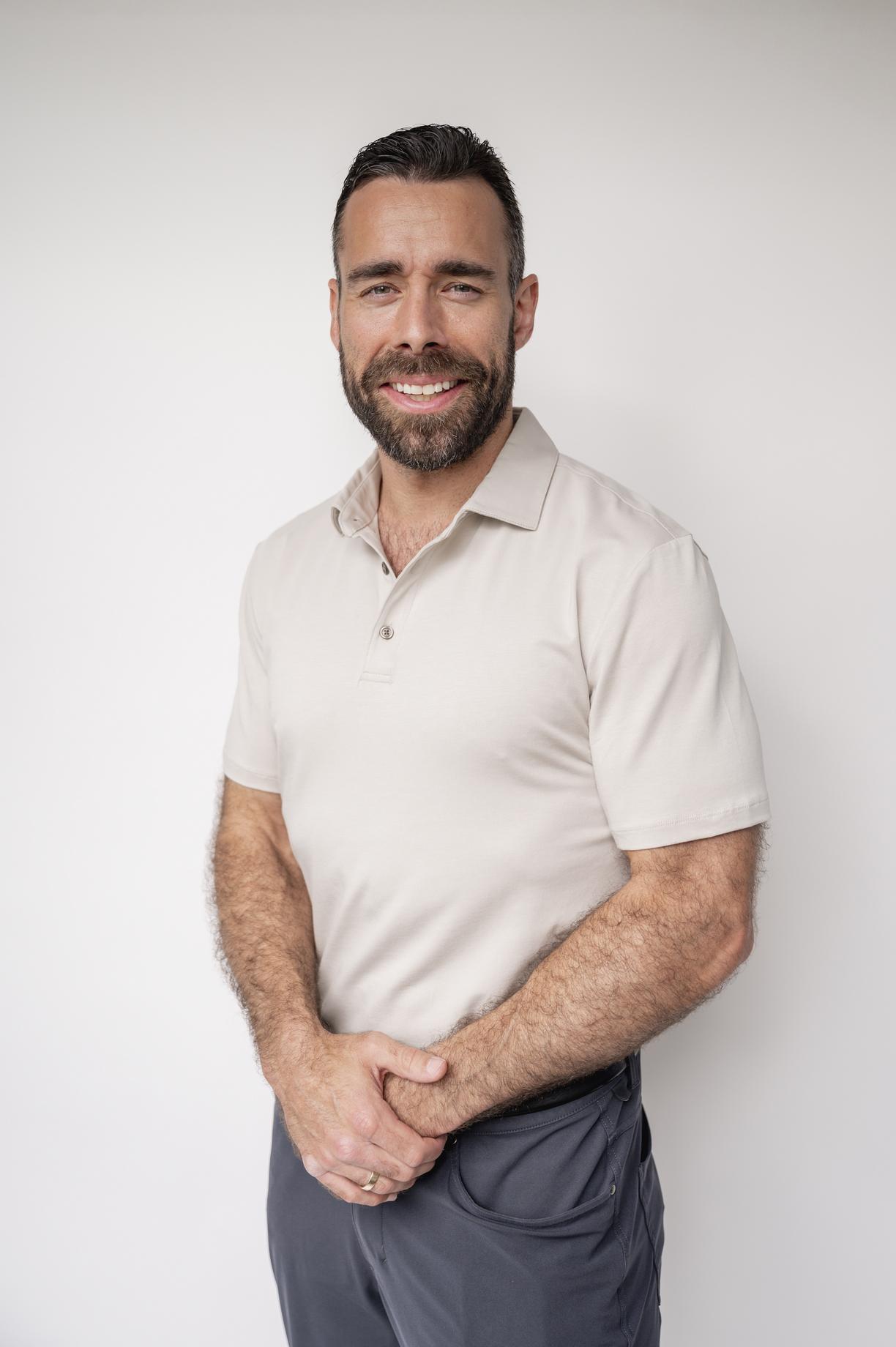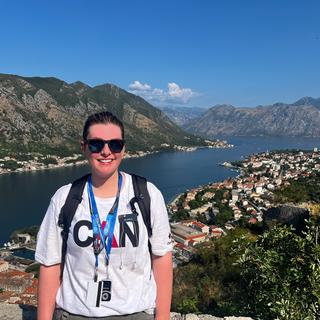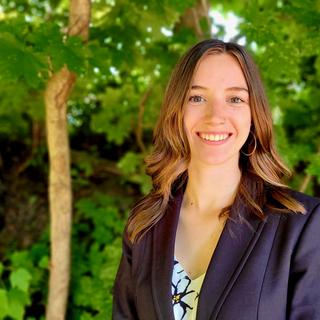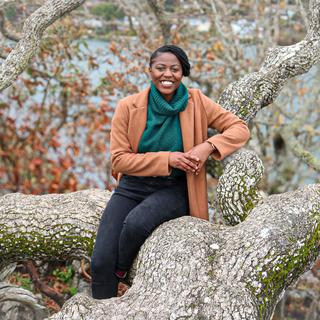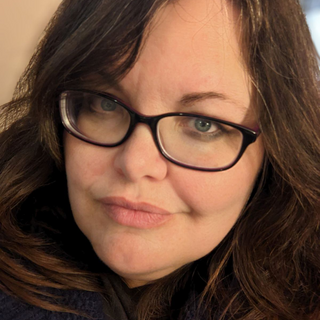A successful physiotherapist and business owner, Jake is helping students gain the same opportunities that shaped his own career.
Jake Lussier credits the foundational skills he learned at Vancouver Island University with setting him up for success. Now a Physiotherapist and Director of Advanced Health + Sports Clinic, which includes two locations in Nanaimo and one in Parksville, Jake is thriving and giving back to his alma mater. On top of mentorship and giving current students internship opportunities at his clinics, he has set up a scholarship for Kinesiology students.
“It’s about making sure the next group of students has the same shot, or maybe an even better one than I did,” he says.
Jake graduated in 2011 from the program, which was then called the Sport, Health and Physical Education program. He then moved to Montreal to earn a Master of Science degree from McGill University before studying at the Evidence in Motion Institute of Health Professionals in the United States. He returned to Nanaimo in 2015 and founded his own clinic in 2018, in the city where he was born.
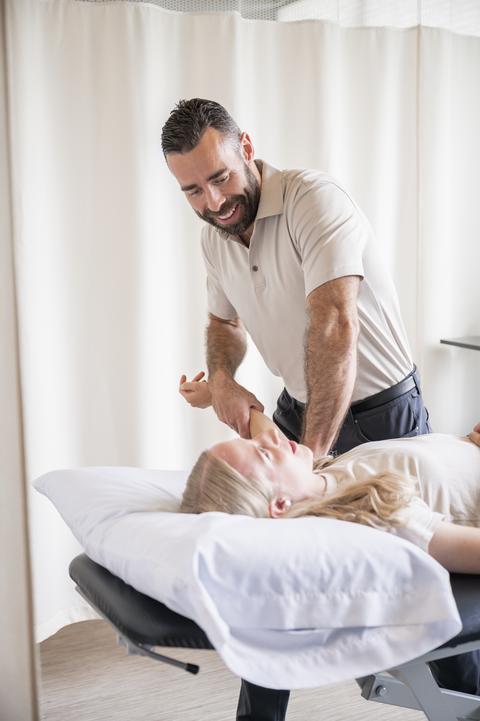
How did your time at VIU shape your career path?
Halfway through my very first semester I realized, after doing a bit of my own research and talking with classmates, that physiotherapy was where I wanted to head. What helped was being surrounded by approachable professors and students who were all chasing different cool things. Some wanted to be teachers, others naturopathic doctors, kinesiologists or chiropractors. Being in that mix gave me a lot of perspective and helped me make a clear decision pretty quickly. From there I could put my head down, stay laser-focused for three and a half years, and just work toward that one goal.
What was your first job after graduation?
My first job was as an independent contractor at a private practice clinic in town. It wasn’t some big, dramatic story. Honestly, it came from an internship I had done as a VIU student. I really enjoyed that experience and it gave me a foot in the door. It made the transition a little smoother because I already knew the environment and some of the people, which was really nice.
What challenges did you face when transitioning from university to the workforce?
The biggest challenge was switching gears from the “academic brain” to the “professional brain”– and then also starting to grow a bit of a “business brain.” All of a sudden, it wasn’t just about assignments and grades; it was about connecting with people, building trust and establishing a caseload. You’re trying to show you’re credible, that you belong, and that takes time. For me, that first year or two was about putting in the hours, proving myself, and slowly getting traction in the community. The degree on the wall and the GPA were like the entry ticket, but once you’re out there, it’s a different ballgame. You’ve got to prove it day after day.
What advice would you give to students who want to follow a similar career path?
Protect your GPA – unapologetically. I know it’s not a glamorous answer, but if you want to get into physiotherapy school (or med school, or law school), your GPA has to be strong. A 3.0 isn’t enough anymore. You’ve got to be a lot closer to 4.0. And even if you don’t see yourself as an academic, you can do it if you put the work in, manage your time and study hard.
And also – don’t be in a rush. If it takes you five years instead of four to finish your degree but you come out with a stronger GPA, that’s worth it. Looking back, I wish I’d slowed down and enjoyed the ride a little more. Go to the student events, soak up the culture, have fun with your classmates. It feels like you’re in school forever, but in reality it’s such a short chapter of your life. The rest of your life is work, so don’t forget to enjoy the student part while you have it.
Was there a particular professor, mentor, or course that had a lasting impact on you?
Guy LeMasurier, hands down. Kinesiology 391 and 491 were probably two of the hardest courses I ever took, but they gave me a massive leg up in grad school. When I got to McGill for physio, none of my classmates had the same background in appraising literature and writing reviews. I felt like I was head and shoulders above most of them in terms of speed, efficiency and accuracy when it came to research papers and project execution. That became kind of my niche in grad school.
And then I’d also say Brad Reimer, who taught physiology and biomechanics. He’s retired now, but he was a huge influence on me too.
If you could give one piece of advice to current students, what would it be?
Do what you want to do for your reasons. It’s so much easier to work hard and stay motivated when you’re being pulled toward something you genuinely care about, instead of being pushed by what sounds good to your friends or what your parents want.
And also, don’t stress if you’re not ready right out of high school. There’s nothing wrong with working a year or two, figuring out what you like (or don’t like), and then using those experiences to figure out what you want to aim at. Even if you’re just “feeling it out” with general studies in first year, take it seriously. Get the A in that English class you don’t care about, because four years later when you’re applying to grad school, you’ll be thankful you did.
How can students make the most of their university experience to prepare for the real world?
Be a professional before you’re officially a professional. If you say you’re going to do something, show up, do it, and do it well. Whether you’re helping with research, volunteering or shadowing someone, treat it like the real thing. Show up on time, dress well, be pleasant, keep your word. That’s how you build trust and credibility. People remember that stuff.
How can alumni like yourself support students who are just beginning their journeys?
By being available. Even little things like having a coffee with a student, sharing your story, or letting someone shadow you for a day can make a huge difference. Alumni can bridge that gap between what you learn in class and what actually happens in the real world. I’ve also been guest lecturing and providing internship opportunities since I entered physiotherapy practice in 2015.
Why do you give to VIU?
Because VIU gave me my start. I wouldn’t be where I am today without the professors, the courses and the environment I had there. So, giving back – whether it’s through scholarships, mentorship or just helping in small ways – feels like the right thing to do. It’s about making sure the next group of students has the same shot, or maybe an even better one than I did.

